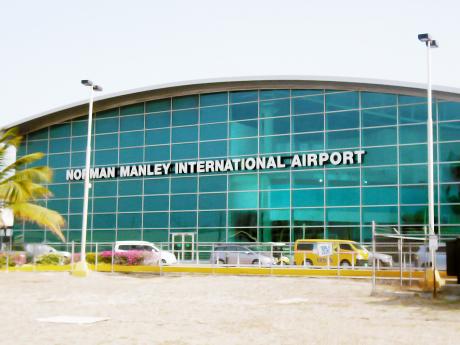Competition agency okay with NMIA divestment
The Fair Trading Commission (FTC) has determined that adequate safeguards are in place to mitigate the potential anti-competitive effects that may arise from the divestment of Jamaica's two international airports to the same entity.
Last month, the Jamaican Government announced that Grupo Aeroportuario del Pacifico (GAP) was successful in its bid to acquire control over the operations of the Norman Manley International Airport (NMIA) located on Jamaica's south coast in Kingston.
The Mexican company already holds a controlling stake in Sangster International Airport on Jamaica's north coast in Montego Bay, which is operated under a 30-year concession granted in April 2003 to MBJ Airports Limited, in which GAP holds 74.5 per cent. The remaining 25.5 per cent of MBJ is held by Vantage of Canada. MBJ Airports similarly has operational control of Sangster but the airport's ownership also remains with the Jamaican government.
The FTC, in its quarterly newsletter, FTCNewsline, noted that NMIA accounted for 27 per cent of the approximately six million passengers who used the services of Jamaica's international airports during 2017.
The FTC said that before the government announced the selection of the preferred bidder, it reviewed the proposed acquisition because GAP also held majority shareholding in the consortium that acquired control over the operations of the Sangster airport in 2015.
It concluded that the relevant market for assessing the competitive effects of the acquisition was the market for international airport services in Jamaica.
The FTC said that NMIA and Sangster International were in the same relevant market as plans for the completion of the North-South Highway in Jamaica meant that it would be considerably easier - travel time less than two hours - in the foreseeable future for either inbound or outbound passengers to travel between the two airports.
To the extent that GAP's management of the NMIA would result in a single supplier of airports services between Jamaica and the rest of the world, the FTC assessed the likelihood that passengers and other users would be harmed by higher prices, as well as lower service quality standards or slower pace of innovation, relative to the market conditions which would prevail if GAP did not acquire control of the Kingston-based airport.
Sufficient safeguards
"Owing to the tight regulations already in place at each international airport, as well as added reporting requirements which would enable the FTC to closely monitor GAP's conduct, the FTC found that sufficient safeguards are in place to mitigate, if not avert, the potential anti-competitive effects which otherwise would have resulted from having a single supplier in the market," said the competition watchdog.
Under the 25-year concession agreement signed on October 10 for the management of the NMIA, GAP will be responsible for improving the airport's land and air operational efficiency, and financing and completing a modernisation programme at an estimated cost of US$110 million.
Additionally, the Jamaican Government will receive a guaranteed percentage of the airport's gross revenues and GAP has the option to extend the arrangements by an additional five years.
In its 2016-17 annual report, NMIA Airports Limited Chairman Newlyn Seaton noted that the airport had an operating surplus of US$9.5 million, a 25 per cent reduction when compared with the US$12.7 million the previous year.
He said that although experiencing a decline in the surplus, NMIA Airports, which operates the airport, continued to be profitable and that has enabled it to eliminate its negative shareholders equity of US$1.1 million in the 2015-16 fiscal year to record a positive equity position of US$4.1 million.
The profit out-turn was primarily the result of increased repair and maintenance of an ageing plant, as well as the conclusion of a two-year retroactive wage agreement. Those resulted in an increase in operational expenses from $29.7 million the previous year to US$35.6 million in 2016-17.
There was also a significant debt impairment provision of US$2.4 million arising from implementation of new Interna-tional Financial Reporting Standards requirements. The main expenses were staff costs of US$7.2 million, depreciation and amortisation of US$7.1 million, and repairs and maintenance of US$4 million.
Seaton said the final stage of the modernisation programme will run from this fiscal year to 2022-23 and would be partially incorporated in the public-private partnership transaction for NMIA to be undertaken by the new operator of the airport.

